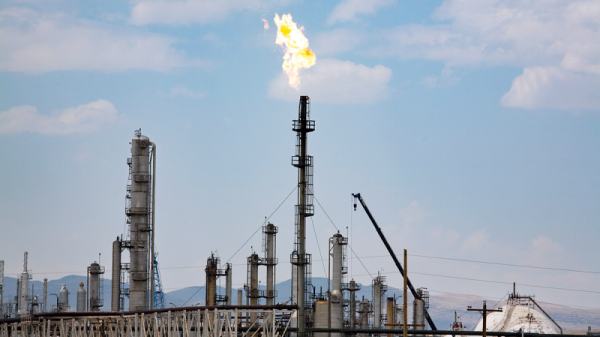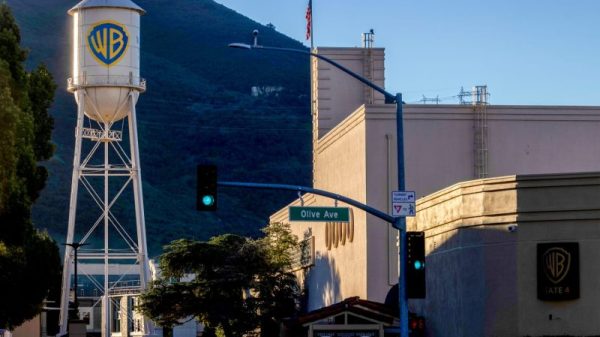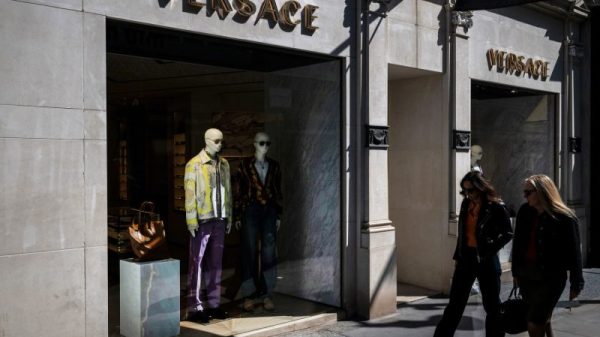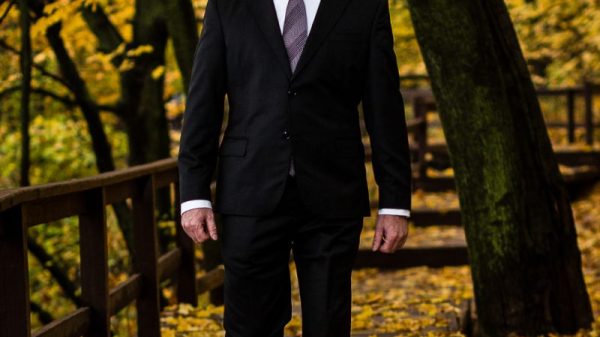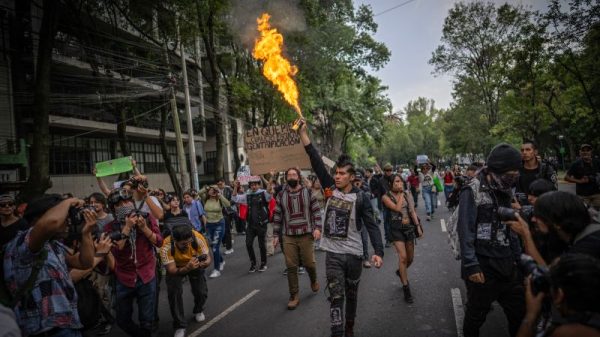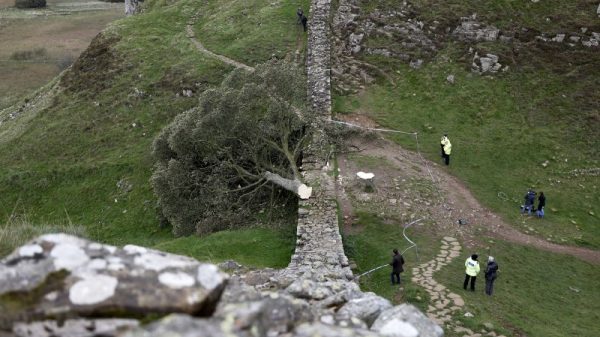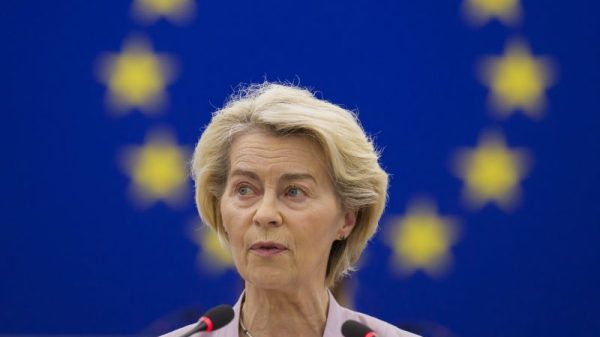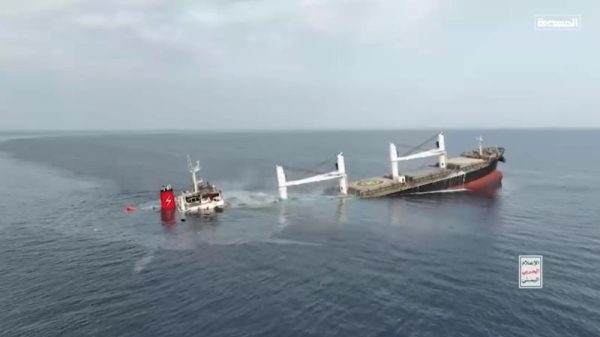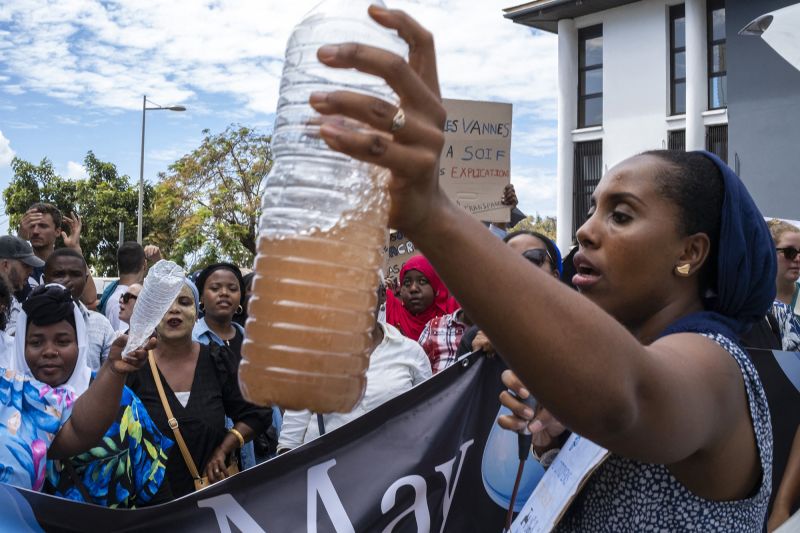When Racha Mousdikoudine opens her kitchen faucet, she never knows what will happen.
For the last four months, Mousdikoudine and her two children have had little or no running water in their home on the French territory of Mayotte, and island of around 310,000 people in the Indian Ocean off the eastern coast of Africa, between Mozambique and the island of Madagascar.
Mayotte is facing an unprecedented water crisis amid one of the worst droughts in its history, as the impacts of the human-caused climate crisis collide with a chronic lack of investment in the water system.
The island is grappling with its worst drought since 1997. Its two water reservoirs have reached a “critical level of decline” – one is at 7% of capacity and the other at 6%, according to the most recent estimates, and they are on the verge of drying up.
It has led to drastic water cuts. Residents only have access to water for around 18 hours at a time every couple of days, according to a schedule published by the Prefecture, the local subdivision of the French government. Many say what little water they have is often contaminated and undrinkable.
Residents have had to cope with school closures and a growing health crisis, all while water bottles become a rare – and expensive – commodity on supermarket shelves.
In a country like France this is ‘unimaginable’
Though 5,000 miles away from mainland France, under French law, Mayotte is as French as the suburbs of Paris.
Colonized by France in 1841, the island was formally recognized as a French department in 2011, meaning it has the same legal status as the 96 departments that make up mainland France.
The French government has responded to the crisis. In September, it shipped 600,000 liters of bottled water to the island for its most vulnerable residents and has deployed soldiers and civil servants to help with water distribution. The government has also suspended water bills for all residents.
But many Mahorais – the term used to refer to people from Mayotte – still feel abandoned.
“The authorities seem absent in our daily suffering,” she said, adding, “when we have no water, what are we actually going to do? We’re going to die of thirst.”
Many, like Mousdikoudine, are angry.
“I’m a French woman, but one without any autonomy, because I have no water,” she said. “I have to choose between going to look for water for my family and going to work. In a country like France, having to make these kinds of decisions, it’s unimaginable.”
The simple acts of washing or pouring glasses of water for her daughters, ages 7 and 9, became such a huge challenge she and her husband decided to send the children to live with their grandmother in the French territory of La Réunion, about a two-hour flight from Mayotte.
The decision was extremely difficult, Mousdikoudine said, but she felt she had no choice.
“It got to the point where I could no longer ensure the safety of my children. Cook them proper meals, take care of their hygiene, things like going to the toilet, washing.”
‘At any moment things can get out of hand’
Water in Mayotte is not only scarce, but what’s available is often contaminated.
Online, residents use the hashtag #MayotteASoif (Mayotte is thirsty) to share videos of the brown, sediment-filled liquid that emerges from their taps. Some, including Mousdikoudine, have taken to the streets in protest.
Many residents, however, believe the water quality issue to be a much bigger problem.
Mousdikoudine and Attoumani both said that after a cut, the water only starts to flow clear after it’s been running for hours. But most residents can’t forgo water during that time when it is rationed.
As the water crisis continues, so do the health risks. The island has been experiencing an acute gastroenteritis epidemic, according to Dr. Soumeth Abasse, president of the medical committee of Mayotte’s Hospital.
Gastroenteritis epidemics are not unusual in the summer months, Abasse said, but this one is extending well into the fall. “We’ve also had a worsening of cases,” he added. “Some cases were a little more difficult, more complicated, with a lot of cases ending up in intensive care.”
He said the causes of the epidemic are both contaminated water and lower hygiene standards resulting from people having less access to water, which affects their ability to wash their hands, shower, flush their toilets and clean their homes.
“We’re always afraid of a possible explosion of these water-borne diseases,” Abasse said. “At any moment, things can get out of hand, and we don’t have enough staff to deal with it.”
Mayotte’s understaffed hospital is only one of many infrastructural issues the French department is facing.
Mayotte’s population has nearly doubled since 2007, and infrastructure improvements haven’t kept pace, Youssouffa said.
Even outside periods of drought, water production on the territory is insufficient, according to the Prefecture, with water cuts a regular occurrence on the island, long before this year’s exceptionally low rainfall.
The increased demands of a larger population coupled with the impacts of climate change, which is making droughts both more frequent and more severe, has put a huge amount of pressure on the island’s water resources.
“The rains have been diminishing for years,” said Youssouffa. “We’ve seen the path of cyclones and the path of rains changing in the region … and that’s directly the impact of climate change.”
For years, talks have been underway to build a third water reservoir and a second desalination plant to increase Mayotte’s drinking water production capabilities. But neither project has begun, according to the Prefecture.
Mayotte has received funding to help with its dire water situation. In 2014, the European Commission allocated 22 million euros ($24 million) to Mayotte for its water supply, as part of a larger funding package.
‘It’s not a normal life’
Mahorais continue to struggle with the financial repercussions of the dire water crisis.
Elsa Leduc, a humanitarian worker who moved to Mayotte from Paris in September, said trying to find bottled water has become a daily chore. “Every time I go to the supermarket, there’s no water,” she said. “I have to go to smaller shops that are a lot more expensive.”
Leduc is lucky that she is able to afford the high prices, but most on the island can’t. According to INSEE, 77% of Mayotte’s inhabitants live below the national poverty line, a figure that is five times higher than in the rest of France.
“The difficulty with the water crisis is that it’s making Mayotte unlivable,” said Youssouffa. “The crisis is so bad that it’s interrupting public services. It’s interrupting schooling. It’s interrupting businesses. It’s not a normal life.”
Mousdikoudine and Attoumani, like many Mahorais, wonder why authorities failed to prepare for it.
“Since 2018, we’ve had small (water) cuts and we could see that there wasn’t any rain,” said Attoumani, “so they should have anticipated, found solutions.”
“The whole system is falling apart literally before our eyes, because it’s shutting down,” said Youssouffa. “You cannot function without water.”
All hopes are on the rainy season, which starts in December. But Mousdikoudine worries it won’t be enough. “I know things are going to get worse.”


